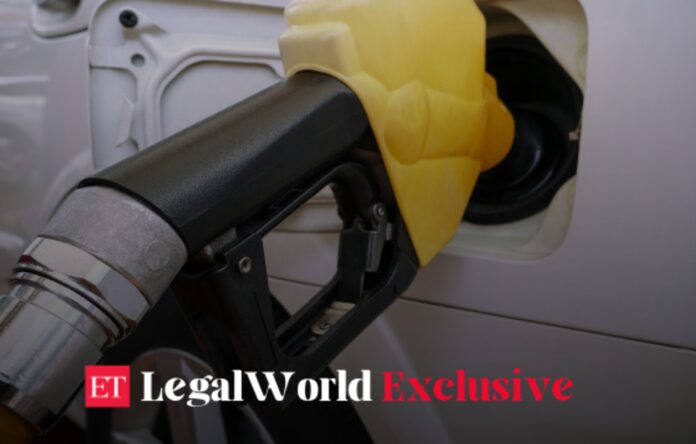Highlights
- The Group of Ministers has proposed increasing the Goods and Services Tax on aerated drinks, cigarettes, and tobacco to 35%, which aims to compensate for losses incurred from rate cuts on other commonly used items.
- The inclusion of petroleum products under the Goods and Services Tax framework has been deferred due to concerns over significant revenue impacts on state and central governments, following deliberations during the 45th GST Council meeting.
- The Central Board of Indirect Taxes and Customs has deemed the proposals regarding changes to the Goods and Services Tax rates as ‘premature’ and ‘speculative,’ indicating that further discussions are necessary before any decisions are made.
The GoM is said to have proposed GST on aerated drinks, cigarettes & tobacco to 35%. The proposed increases in GST from the current highest slab of 28 per cent are likely to help the Centre and states to make up for the loss from rate cuts on other common-use items.
The current tax slab of the four-slab GST structure is of 5 per cent, 12 per cent, 18 per cent and 28 per cent. The highest rate of tax i.e., 28% for the “Luxury products,” under the GST tax structure. The new proposed tax is likely to introduced 35% GST for “Sin Products,” which is a clear demarcation between characters of the product.
The proposed 35% GST slab on tobacco products and aerated beverages, coupled with an additional compensation cess, will significantly increase the tax burden on these items.SR Patnaik, Partner (Head – Taxation), Cyril Amarchand Mangaldas
He added, “This positions tobacco and aerated drinks among the most heavily taxed consumer goods under the current tax regime. While economic theory suggests that higher taxes may reduce consumer demand, the demand for these products, driven by addiction, is generally inelastic,”
The higher taxation is likely to impact demand negatively. However, the impact on long-term demand is likely to be affected considering the nature and consumption of the aforesaid products. “Even with potential short-term reductions in consumption, long-term demand is unlikely to decrease substantially. Their packaging and marketing strategy is likely to remain largely unaffected,” He added.
The character of sin products is ascertained by the impact of the same on public health. ” (tax proposal) will aim to improve public health as well as cover up the losses suffered due to rate cuts in common use items,” said Amit Bansal, Partner, Singhania & Co.
Petroleum Products under the GST
The GST Council in its 45th meeting held on September 17, 2021, had considered the inclusion of Petrol/Diesel and other petroleum products under the GST regime but the matter was deferred by the Council till detailed deliberations on account of substantial repercussions on state and central exchequer were held as, “this is not the right time to bring Petrol and Diesel within the ambit of GST.”
This meeting was in the backdrop Kerala High Court order directing the GST Council represented by the Special Secretary, Office of the GST Council Secretariat, New Delhi to forward the representation of the inclusion of petrol and diesel under the GST within a period of six weeks from the date of receipt of the copy of the representation.
The GST Council deliberated on the issue as a common body as this agenda was being presented before the Council for discussion because of the order of the High Court of Kerala.
On the addition of the petroleum products in the proposed tax rate, SR Patnaik, Partner (head – taxation), Cyril Amarchand Mangaldas said, “Excise duties and state VAT on petroleum products currently serve as significant revenue sources for state governments,” adding, “Transitioning these products to the GST framework could disrupt state revenues.”
Such a shift would necessitate thorough political and economic deliberation, along with phased implementation, to effectively manage its implications for inflation, fiscal stability, and consumer sentiment.SR Patnaik, Partner (head – taxation), Cyril Amarchand Mangaldas
New Tax Slab for the Petroleum Products
Since the GST was rolled out by the GST Council. There has been debate and deliberations on the inclusion of petroleum products within the ambit of the GST. “The current tax regime for petroleum products involves a combination of excise duty and VAT, varying significantly across states, with an effective tax rate often exceeding 50%,” said Amit Bansal, Partner, Singhania & Co.
A shift to a uniform 35% tax slab, as proposed for tobacco products, would simplify the taxation structure but might lead to a reduction in government revenues unless offset by increased consumption or alternate levies. Amit Bansal, Partner, Singhania & Co.
In the 45th GST Council Meeting, a few states suggested their stance on the inclusion of petroleum product. The state of Maharashtra noted that petrol, diesel and other petroleum products have a major contribution to the State Exchequer, Thus, these Petroleum products be continued out of GST as per existing tax structure.
The NCT of Delhi proposed a new tax rate of 125% based on a calculation of the current ratio of VAT/Central excise tax component in the retail value of one litre of Petrol in Delhi and stated that if Petrol is brought wider the ambit of GST, then OST at the rate of 125% will have to be imposed keeping the price at current level and this GST rate slab is currently not there.
The State of Rajasthan, and Kerala highlighted a need for larger deliberations as this policy decision has heavy repercussions on the exchequer. In addition, the State of Rajasthan sought a hundred per cent reimbursement to states, similar to the Compensation scheme.
The lowering of taxation and inclusion within the GST has been sought for relief. “While such a move could lower retail prices, providing relief to consumers and curbing inflationary pressures, it would also challenge fiscal planning for states relying heavily on VAT from fuel. The key lies in balancing consumer benefits with fiscal prudence,” said Amit Bansal, Partner, Singhania & Co.
The GST Council is scheduled to meet on December 21, where the Council is set to make key decisions on life and health insurance premiums. On the proposed tax hike, The Central Board of Indirect Taxes & Customs (CBIC) has clarified and said the proposals regarding on GST rate changes to be, “premature,” and “speculative.”
The Group of Ministers was constituted to look into the GST rate rationalisation which was comprised of ministers from the States of Bihar, Uttar Pradesh, Rajasthan, West Bengal, Karnataka and Kerala with the Deputy Chief Minister of Bihar as the Convenor.


